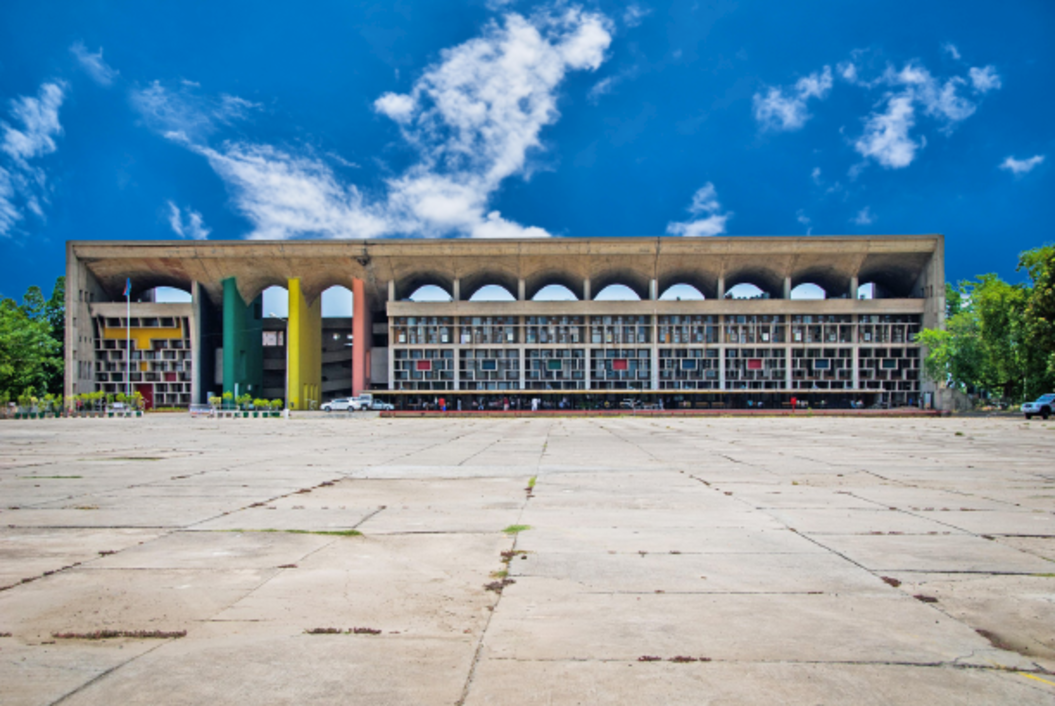In CWP-10299-2022-PUNJ HC- P&H HC stays demolition of Janta Colony in Chandigarh, seeks affidavit of concerned authority specifying whether residents are eligible under Pradhan Mantri Awas Yojana Justices Amol Rattan Singh & Lalit Batra [13-05-2022]

Read Order: Davinder And Others v. Union Territory Chandigarh And Ors.
Monika Rahar
Chandigarh, May 14, 2022: While dealing with a writ assailing a demolition Notice issued by the Chandigarh Administration requiring residents of Janta Colony in Chandigarh to vacate the area, the Punjab and Haryana High Court has stayed the demolition until next hearing and directed the competent authority not less in rank than the Secretary, Housing and Urban Development to file his own affidavit stating whether the petitioners were covered by the eligibility conditions set down under the Pradhan Mantri Awas Yojana.
While adjourning the matter to June 1, 2020, the Bench of Justices Amol Rattan Singh and Lalit Batra held, “In the meantime, in view of what was contained in clause 4 of the aforesaid Scheme, the colony in which the petitioners are residing shall not be demolished till the next date of hearing.”
By this petition, filed under Articles 226/227 of the Constitution of India, the petitioners prayed for the issuance of a writ in the nature of certiorari, quashing the notice dated May 3, 2022, asking Janta Colony residents to evacuate before the demolition of the said colony. The said notice was stated (in the petition) to be illegal, arbitrary, unreasonable and therefore in violation of Article 14, 19 and 21 of Constitution of India, besides being in violation of the policy dated November 06, 2006.
The petitioners further prayed for directions restraining the administrators of UT Chandigarh from evicting the petitioners from their houses/jhuggis in Janta Colony, Sector 25-D, Chandigarh, during the pendency of this petition.
The petitioners further prayed for the issuance of a writ in the nature of mandamus seeking directions to the respondents to make arrangements for alternative accommodations for the petitioners in view of the policies in view of the judgment of the Supreme Court, with such eviction rendering slum dwellers homeless.
The counsel for the petitioners, at the outset, pointed to a scheme known as the Pradhan Mantri Awas Yojana (clauses 4 and 4.1). Upon a query to the counsel appearing for the respondent-UT, Chandigarh, as to whether the petitioners’ case was considered under the said Scheme, he submitted that the petitioners’ eligibility was considered under the Small Flats Scheme, 2006, and they were not found to be eligible.
The Counsel also referred to an order of a co-ordinate Bench of the Court in a Writ-PIL (CWP No.12762 of 2016) to submit that the Bench did not interfere in the matter. Upon a query to him as to whether the aforesaid Pradhan Mantri Awas Yojana of 2015 was also the subject matter of that petition, he fairly submitted that it was not.
Thus, in view of the above, the Court observed, “If that is so, we do not see how citing a scheme of the year 2006 and a petition in which the aforesaid Pradhan Mantri Awas Yojana of 2015 is not even an issue, can even vaguely determine the case of the petitioners.”
While adjourning the matter to June 1, 2020, the Court directed the competent authority [not less in rank than the Secretary, Housing and Urban Development (by whatever nomenclature the person so concerned is designated)], to file his own affidavit in reply to each paragraph of the petition, also stating as to whether or not the petitioners are covered by the eligibility conditions set down under the provisions of the aforesaid Pradhan Mantri Awas Yojana, 2015 or not; and if not, detailed reasons for that. Meanwhile, the Bench has stayed until the next date of hearing.
Sign up for our weekly newsletter to stay up to date on our product, events featured blog, special offer and all of the exciting things that take place here at Legitquest.




Add a Comment